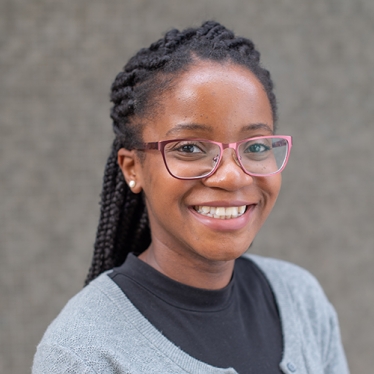Baraza: January 20, 2023
Dr. Mwaba is assistant professor in the department of government and earned her PhD at UF. Her recent writings have largely focused on public engagement: “Addressing a pandemic on a continental level.” Africa Is A Country (2020); “The African Union called on Congo to suspend its election’s results. That’s unprecedented.” The Washington Post (2019); “How will the African Union respond to the military overthrow in Sudan?” The Washington Post (2019); and “The African Union is now complete, but at what cost?” Africa Is A Country (2017).
 Dr. Anna K. Mwaba spoke on the electoral observance process in Malawi’s 2020 presidential elections. Many heads of states or politicians have questioned the role of international election observers or even denigrated their roles. Indeed, international election observers do not come without their own problems, including their own biases, criticisms that they hold African elections to lower standards than elsewhere, or that they may unintentionally fuel post-election violence. Nevertheless, there may be some strengths and benefits of domestic election observers in their place or in the two actors working together. In Mwaba’s research, local civil society organizations and NGOs partnered together to observe Malawi’s 2020 elections and concluded that these elections were not only credible and transparent, but perhaps they unfolded smoother than previous elections. In doing so, Malawians themselves were able to feel a sense of ownership over the electoral process, which could increase participation and democratic robustness. Moreover, while trust in the electoral commission remains disturbingly low, it did slightly increase following Malawi’s electoral creativity. Nevertheless, domestic observers, as with international ones, do not come problem-free. Mwaba believes that international observers serve a critical role, but that their role needs to be better defined. And we might ask: Is there a risk that Malawi’s success might influence watchful autocrats to commandeer their own, less credible, and less transparent electoral observer process? Domestic observers also depend on other factors, including funding and civic education. How applicable or desirable is Malawi’s model to other contexts? Dr. Mwaba hopes to continue this research and discover answers to some of these questions.
Dr. Anna K. Mwaba spoke on the electoral observance process in Malawi’s 2020 presidential elections. Many heads of states or politicians have questioned the role of international election observers or even denigrated their roles. Indeed, international election observers do not come without their own problems, including their own biases, criticisms that they hold African elections to lower standards than elsewhere, or that they may unintentionally fuel post-election violence. Nevertheless, there may be some strengths and benefits of domestic election observers in their place or in the two actors working together. In Mwaba’s research, local civil society organizations and NGOs partnered together to observe Malawi’s 2020 elections and concluded that these elections were not only credible and transparent, but perhaps they unfolded smoother than previous elections. In doing so, Malawians themselves were able to feel a sense of ownership over the electoral process, which could increase participation and democratic robustness. Moreover, while trust in the electoral commission remains disturbingly low, it did slightly increase following Malawi’s electoral creativity. Nevertheless, domestic observers, as with international ones, do not come problem-free. Mwaba believes that international observers serve a critical role, but that their role needs to be better defined. And we might ask: Is there a risk that Malawi’s success might influence watchful autocrats to commandeer their own, less credible, and less transparent electoral observer process? Domestic observers also depend on other factors, including funding and civic education. How applicable or desirable is Malawi’s model to other contexts? Dr. Mwaba hopes to continue this research and discover answers to some of these questions.
Recap written by Cory D. Satter